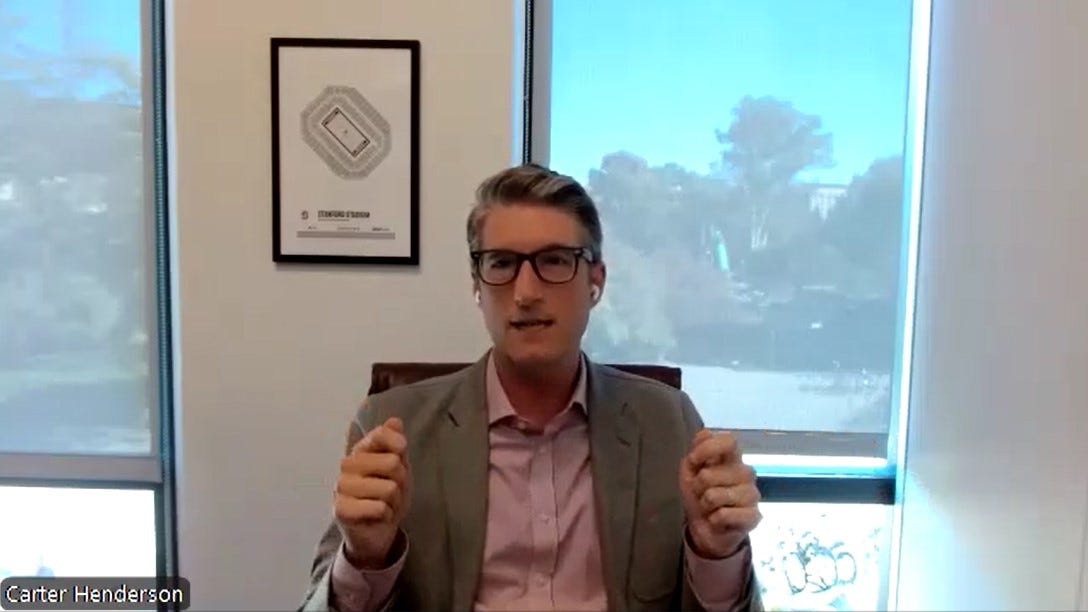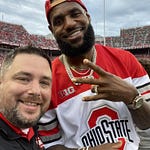
In this episode of the PXPU podcast, Tony Castricone interviews Carter Henderson, Associate Athletic Director at Stanford University, about the hiring process for play-by-play broadcasters at Division I schools.
Show Notes:
01:33 - Carter's background and experience in hiring play-by-play broadcasters
03:18 - Reflections on the hiring process that brought Tony to Washington
04:05 - What stands out in initial interviews with candidates
05:52 - The importance of understanding specific job needs in different searches
07:34 - How play-by-play roles are evolving and what schools are looking for
09:42 - Comparing hiring processes at different institutions (Jacksonville, Washington, Stanford)
11:48 - The importance of "fit" in the hiring process
13:08 - The challenge of assessing candidates for limited broadcasting opportunities
14:51 - The value of clarity in what both candidates and hiring committees are looking for
16:05 - Tony's memorable interview answer about integrating into the community
17:56 - The importance of bringing "soul" to the broadcasting role
19:04 - Discussion on general job interview advice for broadcasting positions
20:35 - The role of search committees in hiring decisions
22:11 - The importance of developing advocates in the industry
23:35 - Thoughts on the future of college team broadcasting
25:34 - Closing thoughts and appreciation for resources like PXPU
Key Takeaways:
1. The role of play-by-play broadcasters is evolving beyond just calling games.
2. By the interview stage, candidates' ability to call games is usually not in question.
3. Cultural fit and ability to contribute to broader institutional goals are crucial.
4. Hiring decisions are often made by committees representing various stakeholders.
5. Networking and building a positive reputation in the industry are important.
6. Candidates should demonstrate how they can integrate into the community and culture.
7. The future of college sports broadcasting may involve more diverse storytelling opportunities.












Share this post